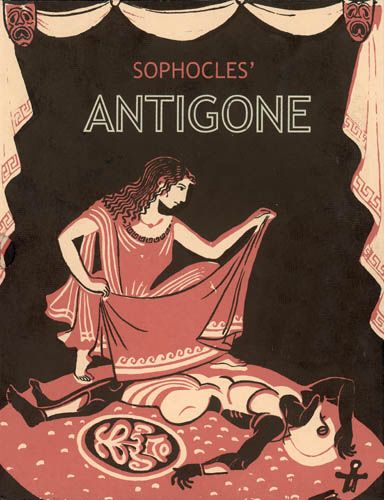There’s a great article in the recent on-line New Yorker applying classic Greek literature to issues that have arisen over the burial of Boston Marathon bomber Tamerlan Tsarnaev. I provide a short version here but recommend that you go read the piece in its entirety.
The article’s author Daniel Mendelsohn sums up the burial drama as follows, noting that the
cadaver [was] seemingly so morally polluted that his own widow would not claim it, that no funeral director would touch it, that no cemetery would bury it. Indeed, even after Peter Stefan, a Worcester funeral director, had washed and shrouded the battered, bullet-ridden body for burial according to Muslim law, the cadaver became the object of a macabre game of civic and political football. Cemetery officials and community leaders in the Boston area were concerned that a local burial would spark civic unrest…While the state’s governor carefully sidestepped the issue, asserting that it was a family matter, other politicians seemed to sense an advantage in catering to the high popular feeling. “If the people of Massachusetts do not want that terrorist to be buried on our soil,” declared Representative Edward J. Markey, a Democratic candidate for the U.S. Senate, “then it should not be.”
And so it went until late last week, when—due to the intervention of Martha Mullen, a Richmond, Virginia woman who’d been following the story, a practicing Christian who cited Jesus’s injunction to “love our enemies” as her inspiration—Tsarnaev’s body was finally transported to a tiny Muslim cemetery in rural Virginia and interred there in an unmarked grave.
Mendelsohn than goes on to talk about burial beliefs and practices in classical Greece and mentions their appearance in various works of literature. For instance, he notes how even Achilles, driven so mad by the death of Patroclus that he desecrates the body of Hector, in the end is brought around to respecting the dead, giving up the body to Hector’s father, King Priam:
The gigantic epic ends not (as some first-time readers expect) with the Wooden Horse, or the Fall of Troy, but with the all-important funeral of the greatest of the Greeks’ enemies—a rite of burial that allows the Trojans to mourn their prince and, in a way, the audience to find closure after the unrelenting violence that has preceded.
Likewise, the suitors at the end of The Odyssey are allowed a ritual burial. And in Sophocles play Ajax, Mendelsohn notes that Odysseus makes a passionate plea to Agamemnon to bury the traitorous Ajax.
But the most famous work on this subject is, of course, Antigone. The plot, as I’m sure you know, involves Creon’s order to leave unburied the traitorous brother Polyneices, who attacked the city, and Creon’s niece Antigone choosing to administer funeral rites, even though it means her death. I love how Mendelsohn’s applies Antigone to the Tsarnaev situation:
[W]hat preoccupies Antigone, who as we know is attracted to universals, is simply another “absolute”: the absolute personhood of the dead man, stripped of all labels, all categories—at least those imposed by temporal concerns, by politics and war. For her, the defeated and disgraced Polyneices, naked and unburied, is just as much her brother as the triumphant and heroic Eteocles, splendidly entombed. In the end, what entitles him to burial has nothing to do with what side he was on…This is why, during her great debate with Creon, while the king keeps recurring to the same point—that Eteocles was the champion of the city, and Polyneices its foe, and that “a foe is never a friend”—such distinctions are moot for Antigone, since the gods themselves do not make them. “Nonetheless,” she finally declares, putting a curt end to another exchange on the subject, “Hades requires these rites.” The only salient distinction is the one that divides gods from men—which, if true, makes all humans equal.
The alternative is to label certain humans as monsters—and once we refuse to see the humanity in another, we put our own humanity at risk. Thus Antigone, along with Homer’s epics, becomes a powerful argument as to why we should accord Tsarnaev a ritual burial:
Whatever else is true of the terrible crime that Tamerlan Tsarnaev is accused of having perpetrated, it was, all too clearly, the product of an entirely human psyche, horribly motivated by beliefs and passions that are very human indeed… To call him a monster is to treat this enemy’s mind precisely the way some would treat his unburied body—which is to say, to put it beyond the reach of human consideration (and therefore, paradoxically, to refuse to confront his “monstrosity” at all).
This is the point that obsessed Sophocles’ Antigone: that to not bury her brother, to not treat the war criminal like a human being, would ultimately have been to forfeit her own humanity. This is why it was worth dying for.


